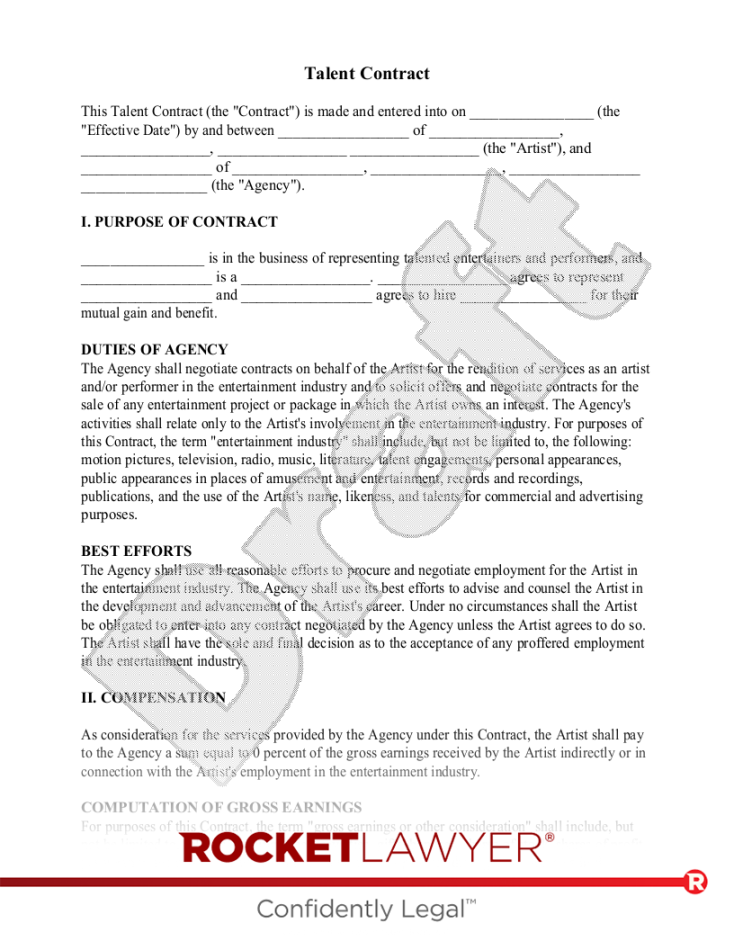Understanding the Core Elements
A talent agency agreement template is a legal document that outlines the contractual relationship between a talent agency and an individual or entity seeking representation. It serves as a blueprint for the professional collaboration, defining the rights, responsibilities, and expectations of both parties.

Key Components of a Talent Agency Agreement Template
1. Parties Involved: Clearly identify the talent agency and the individual or entity being represented. Include their full legal names and addresses.
2. Scope of Representation: Define the specific areas of representation, such as acting, modeling, music, or other relevant fields. This will help establish the boundaries of the agency’s services.
3. Term of Agreement: Specify the duration of the agreement, whether it’s a fixed term or indefinite. Consider including renewal options or termination clauses.
4. Exclusive or Non-Exclusive Representation: Determine whether the agency will have exclusive rights to represent the talent or if the talent can seek representation from other agencies.
5. Commission Structure: Outline the commission rates that the talent agency will earn on the talent’s earnings. This should be clearly stated and include any applicable deductions or fees.
6. Agency Responsibilities: Detail the agency’s obligations, such as securing auditions, negotiations, and promoting the talent’s career.
7. Talent Responsibilities: Specify the talent’s duties, including attending auditions, maintaining professional standards, and cooperating with the agency’s efforts.
8. Expenses: Address the allocation of expenses between the agency and the talent, such as travel, accommodation, and marketing costs.
9. Dispute Resolution: Include a clause outlining the dispute resolution process, such as mediation or arbitration, to avoid litigation.
10. Confidentiality: Ensure that both parties agree to maintain the confidentiality of any sensitive information disclosed during the course of their relationship.
11. Assignment and Subcontracting: Specify whether the agency can assign its rights or subcontract its obligations to third parties.
12. Force Majeure: Address events beyond the control of either party that may affect the performance of the agreement, such as natural disasters or acts of war.
13. Governing Law and Jurisdiction: Indicate the governing law that will apply to the agreement and the jurisdiction in which any disputes will be resolved.
14. Notices: Establish the method for delivering notices between the parties, such as email or registered mail.
15. Entire Agreement: State that the agreement constitutes the entire understanding between the parties and supersedes any prior or contemporaneous communications.
Design Considerations for a Professional Template
To convey professionalism and trust, consider the following design elements:
Clear and Concise Language: Use plain language that is easy to understand. Avoid legal jargon that may confuse the parties.
Conclusion
A well-crafted talent agency agreement template is essential for establishing a clear and mutually beneficial relationship between the agency and the talent. By carefully considering the key components and design elements outlined above, you can create a professional and legally sound document that protects the interests of both parties.